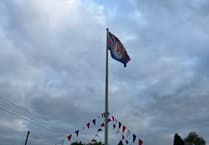TALENTED graduate and Welsh international oarswoman Katrina Jacks died from altitude sickness while trekking in the high Andes of Peru, a coroner was told.
She was only 23 when she was found dead in her bed while staying with a local family on an island in Lake Titicaca, the highest navigable lake in the world, 12,530 feet above sea level.
Earlier in her post-university gap year trip, the Commonwealth Games medal winner from Tidenham had walked the Inca Trail to the ancient city of Machu Picchu.
She had also worked in an orphanage in Ecuador.
Gloucestershire Coroner Alan Crickmore heard that she had been at high altitude for some time during her trip but that altitude or mountain sickness could have a delayed onset, and the only remedy was to get to lower altitude as quickly as possible.
The inquest at the Gloucestershire County Council offices in Gloucester heard that Katrina had gone to the island of Alantani with a group of other people to experience the life of the islanders.
One of the group, Andre Pearl said he got to know her because she was staying with the same host family.
"She played with the couple's daughter in the afternoon and told us about her travels. We had a lot of laughs and she was a very likeable person.
"Then we all went to the top of a hill to watch the sunset and Katrina went up so fast that no one else could keep up with her."
His sister Catherine said that none of the group had known each other prior to going to the island.
"At dinner Kate did not eat much and said she felt cold. She decided to wear her clothes under the traditional skirt we were all to wear that evening," she said.
"She said she did not feel too well and only had one bottle of coke when we went to the community centre for traditional dancing.
"When we got back to the house she went straight to the bathroom and when I helped her off with her skirt, she complained of a headache and that her muscles were also aching.
"She thought she was getting a cold and said she would take paracetamol and sleep as long as possible. I told her to wake me if she felt bad. I can't understand why we didn't hear anything in the night."
Catherine tried to wake Katrina in the morning but was unable to do so and a doctor found that she had died.
Pathologist Dr John McCarthy told the inquest he had basically found the same as the first post mortem had found in Peru.
He said she had died from altitude or mountain sickness, which caused pulmonary and cerebral oedema.
High altitude meant there was a smaller amount of oxygen in the air and this, in a very small number of people, caused acute mountain sickness.
The high altitude pulmonary oedema and cerebral oedema happened that night after she went to bed.
"On the balance of probabilities that accounts for her death," he said.
"The only way of predicting mountain sickness is to have suffered from it previously.
"Delayed onset oedema can occur much later and the only treatment is to reduce the altitude, something which was not possible in this case."
Mr Crickmore said Katrina had died quite suddenly even though she had already been at high altitudes during her trip.
"I am satisfied that she died from the effects of altitude sickness and she would not have developed it if she had not been where she was."
Miss Jacks, a former public schoolgirl who had rowed for Great Britain, was the daughter of two GPs in Chepstow, Monmouthshire - doctors Alasdair and Susanna Jacks.
She had attended Haberdashers' Monmouth School for Girls before graduating from Imperial College, London, with a first class degree in chemical engineering last year.
'Katrina will be very sadly missed by her family, boyfriend Jon and all her many friends,' her parents said.
'She was extremely bright and gained straight As at both GCSE and A-level. She was a proficient needlewoman and loved baking, especially for her friends.
'Her huge contribution helped build the strong foundations of rowing at the school today and will be considered a lasting legacy. Her loss will be immeasurable.'
A superb rower, Miss Jacks took gold at the National Schools Championships, represented Great Britain at under-16 level and was part of the Welsh eight that won silver in the 2006 Commonwealth Rowing Championships.
Verdict: Accident.




Comments
This article has no comments yet. Be the first to leave a comment.